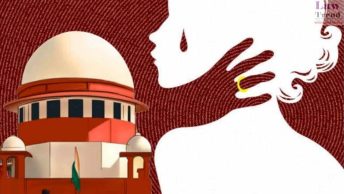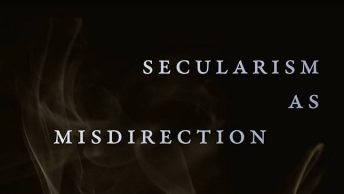Here is a guest post by Gopal Sankaranarayanan, an advocate practising in the Supreme Court of India, which responds to Venkatesan’s post on the Srikrishna report. I’m also posting below Venkatesan’s response to Gopal’s post.
It is with some interest that I read Mr.Venkatesan’s post concerning the much debated interim Report submitted by Justice Srikrishna regarding the recent events at the Madras High Court. While I will not quibble with the fact that the author has been a little casual in his summing up of the Report (“with the connivance of the judiciary”, “if this root cause had not been there, the temptation to use excessive force would not have been there”), I do take issue with what I feel has been a selective and limited reading of it. I wish to address these concerns in the order that Mr.Venkatesan has done:
1. Justice Srikrishna’s Omission: Mr.Venkatesan conveys the impression that ‘Who started it all?’ was the primary question that agitated the Supreme Court. In fact, having been present in the courtroom on the days when the matter was heard, (19th, 23rd, 25th and 26th of February), I found that the Court was primarily concerned with pacifying the strong contingent of Madras lawyers and cajoling them to call off the strike, at which point they sought the suspension of the police officers in order for them to return to work. It is this demand, in fact, that is reflected in the following words of the Bench in its Order of 26th February 2009:
“The Committee initially shall consider any immediate action against the police officers who allegedly allowed armed policemen to enter the premises of the High Court without permission of the acting Chief Justice.”
Mr.Venkatesan somehow concludes that the vital question of identity remained unanswered in the interim report and says – “Justice Srikrishna writes: ‘It is not clear from the videos as to who was the officer that ordered the lathi charge’. It does great injustice to suggest that the good Justice had only one pithy line to offer to those baying for names. A glance at Page 11 of the Report will show that the above quote is in fact only a section of a sentence regarding the Commission’s difficulty in determining identity. The true extract is:
Although, some representations and affidavits given by the lawyers name Director General of Police Mr. Jain, Commissioner of Police Mr. Radhakrishnan, Joint Commissioner of Police ,Mr. Ramasubranaian and Deputy Commissioner of Police, Mr. Saraangan as having ordered the lathi charge, it is not clear from the videos as to who was the officer that ordered the lathi charge. The video taken by the official videographer of the police has a timer ad indicates the time from second to second but the videos taken by the TV staff produced by lawyers do not show the timings. The official video does not show the presence of the Commissioner of Police till about 1714 hours. From the information given by the Home Secretary and the Police Commissioner, it would appear that upto that time only the Additional Commissioner of Police K Vishwanathan was in charge and the Police Commissioner arrived on the scene at about 1714 hours upon receiving the information that the situation was going out of hand. At about 1715 hours the Commissioner of Police is seen restraining the men and asking them to retreat.
The above paragraph makes it abundantly clear that the ACP was “in charge” when the lathi charge was ordered, and that the Commissioner had not arrived at the scene. Yet, Justice Srikrishna desists from leaping to any conclusions as to who in fact had ordered the police action. That would require further investigation (more than 2 days’ interviews could afford), and would remain a wholly academic question if the Committee did not consider it necessary to institute any immediate action against the police officers involved, which in fact was the true mandate of the Order of the Supreme Court.
And of course, to expect the police officers who were interviewed to spill the beans on their superiors is naiveté, which a brief experience of India’s feudal babudom can soon dispel.
2. Justice Srikrishna’s anxiety – Mr.Venkatesan seems to be somewhat confused about the mandate of the interim Report. The only task before the Committee was to ascertain whether any “immediate action” would be recommended against the Police Officers at this stage. It did not in any manner contemplate action against the armed Policemen who had actually indulged in the mayhem that was unleashed that unhappy day. It is unclear why the Report would cause such disappointment and hand-wringing regarding issues that were never in its ken. At no stage has Justice Srikrishna exonerated the policemen who perpetrated the atrocities – he has in fact roundly condemned them. I find it difficult in this background to accept the facetious conclusion drawn by Mr.Venkatesan about Justice Srikrishna – “he believes that the use of excessive force by the police was a response to this root cause”.
3. Justice Srikrishna’s aversion – A glance at the Comments section of the Post in dispute shows me that Mr.Venkatesan has issued a qualified detraction of his remarks concerning lawyers’ agitation over political issues. While I agree with the views of Suresh, Jenna and Anonymous who have granted me respite from having to frame a response, it might be apposite to gently remind ourselves of the words of the Constitution Bench in two separate passages of Ex-Capt. Harish Uppal v. Union of India, (2003) 2 SCC 45:
A dispute between a lawyer/lawyers and police or other authorities can never be a reason for going on even a token strike. It can never justify giving a call for boycott. In such cases an adequate legal remedy is available and it must be resorted to.
And,
It is held that only in the rarest of rare cases where the dignity, integrity and independence of the Bar and/or the Bench are at stake, Courts may ignore (turn a blind eye) to a protest abstention (sic) from work for not more than one day. It is being clarified that it will be for the Court to decide whether or not the issue involves dignity or integrity or Independence of the Bar and/or the Bench.
While I also agree that Mr.Venkatesan’s analogies ought to be rejected, it would be worth contemplating whether, even in a situation like the Emergency, (where lawyers were affected, and at the forefront of the protest) the Bar ought to be allowed to go on strike, as this would further disenfranchise an already cowering public.
4. Justice Srikrishna’s Lack of Clarity – In the Comments section, Mr.Venkatesan seeks clarity from the Report as to how the Acting Chief Justice should have handled the situation instead of the “soft policy” he had adopted. Neither was this the scope of the Report, nor should a Committee appointed in this regard voice its unsolicited suggestions. As it is, the Chief Justice of India has expressed his acceptance of this view of Justice Srikrishna.
Venkatesan’s Response to Gopal’s Post






rightly said sir,it should be laid down as to who should give lathi charge or even firing,, to avoid repercussions